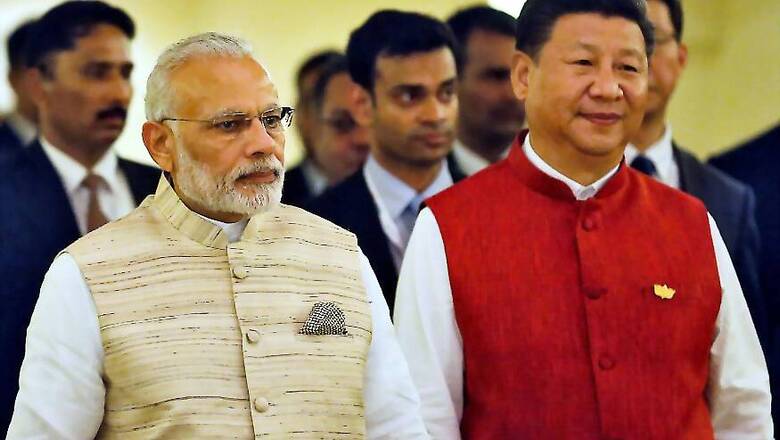
views
With the informal meeting between Prime Minister Narendra Modi and Chinese President Xi Jinping getting underway on Friday, the establishment has already begun throwing around words like “bold” and “unprecedented”.
The PM’s visit, however, is only the latest among India’s attempts at achieving short-term bilateral stability after a tense year of border incursions and military standoffs.
The relationship between Beijing and New Delhi that had been gradually deteriorating since China’s opposition of India’s membership to the Nuclear Suppliers Group, the Doklam standoff and most recently the tensions in Maldivian waters, now seems to be on the mend. It is important though to treat this Modi-Xi meeting as a ‘band-aid over a bullet hole’ move that it really is.
As one commentator has pointed out, this informal, laidback meeting of the leaders is a format that Beijing often favours to mend relations with rivals — but one that seldom reaps tangible or longstanding improvements to bilateral relations.
Modi’s visit follows three high-level engagements with the country by National Security Advisor Ajit Doval, Foreign Secretary Vijay Gokhale and External Affairs Minister Sushma Swaraj.
Irrespective of what India hopes to gain from this meeting, its timing, merely a month before the meeting of the Shanghai Cooperation Organisation, leads one to believe that it might, in fact, be a Chinese move to obtain the Indian accession to whatever proposition is presented in June.
India’s expectation of any sea change in the strained relationship with China may be especially unfounded. The tendency to revel in small wins — such as the Chinese President meeting Modi midway in Wuhan instead of Beijing — puts India on a position of weakness while ignoring the stagnation of India’s strategic interests in the region.
China, meanwhile, has continued to grow from strength to strength with its new military base in Djibouti, and the resurgence of China-friendly governments in Sri Lanka and Maldives (concurrent with the deterioration of their relationship with India).
Maldives, meanwhile, has asked India to take back a Dhruv Advanced Light Helicopter that New Delhi had gifted Male. To make matters worse, India’s thirst to get on the good side of the Chinese has come at the cost of shunning friendly ties with Tibet.
It is also telling perhaps that despite a year of high-level engagements with the Chinese, the Indian administration has remained particularly reticent about China’s military build-up in the Doklam plateau.
It’s reminiscent of the Scarborough Shoal standoff between China and the Philippines where the Filipino withdrawal was swiftly followed by increased militarisation of the islands by the Chinese navy.
While there is no doubt that India met its strategic objectives in the Doklam plateau and the Chinese gambit failed, whether the episode in its entirety can be called an Indian win is still questionable.
More disappointing perhaps is the fact that India does not seem to have internalised the lessons that it, for a while at least, appeared to have learnt in the Doklam plateau — that strength and not appeasement must be at the heart of India’s interactions with China.
In the short term, tactics such as this may help bring internal political stability to India and provide the economic counterweight that China needs. In the long run, however, the effective result of this interaction may be nil.
The Wuhan summit comes at a time when both economic and political clout are gravitating towards Asia. The larger reality, however, remains that, as regional powers, India and China are structurally set to compete.
Already both are offering different political models for domestic development. Under Xi Jinping, China is keen to sell socialism with Chinese characteristics; in other words a blend of authoritarianism and market economics to developing countries in Asia and Africa.
Modi, meanwhile, has made it clear that India’s democracy is a source of stability in a world that is otherwise in turmoil. Similarly on matters of security, China intends to emerge as the sole arbiter of disputes in the Indo-Pacific while India is partnering with like-minded countries such as the US, Japan and Australia to foster a rules-based order that is more pluralistic than the Chinese offering.
Unless the Wuhan summit can make tangible gains towards addressing these contradictions, it is an exercise in maintaining short-term stability between the two Asian giants but nothing more.
(The author is an Associate Fellow with the Observer Research Foundation. He tweets at @darth_beda. Views are personal)




















Comments
0 comment